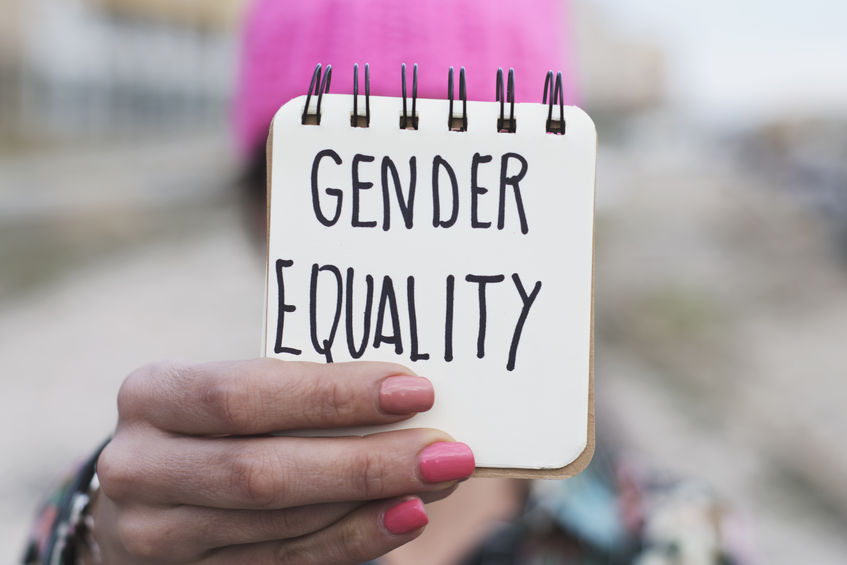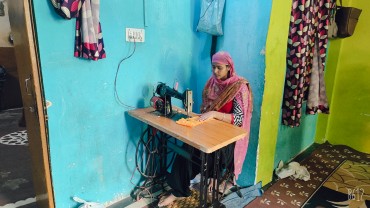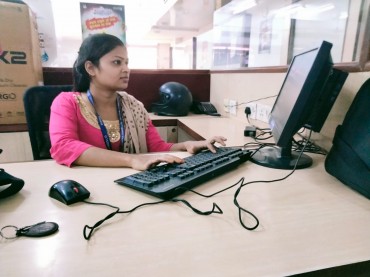Indians are raised with some ideas ingrained in them, which although seem very trivial, the given free-rein to some cancerous ideologies, poses very much as a catalyst in moulding the sexist psyche. In fact, sexism is so internalised and ubiquitous that we mostly overlook it or give in to it. Everyday sexism begins from classroom seating arrangements to billboards and TV ads. We’re inherently a society that is taught not to question anything, from traditions and practices to career choices. And that has made it enormously hard for us to question the existing patriarchal norms. Sexism is so deeply associated with so many spheres of our lives and the society that most of the sexist notions go, if not unnoticed, ignored.

Gender Equality
Sexist Statements – A Man’s Rightful Authority to Pass Lewd Comments
Starting from the men of power and influence, some of them have passed the most detestable and sexist statements in public, in this day and age. What else explains statements like ‘women who wear jeans give birth to transgender’ or when Abu Azmi said scantily-clad women attracted male attention and that rape cases were on the rise due to “women wearing less clothes”, or the fact that a prominent politician like Azam Khan calls a fellow politician, Jaya Prada ‘naachne gaane wali’. When Ali Anwar says that Smriti Irani has done quite well for herself by receiving the “tan dhakne wala department” (Case in point: Ministry of Textile), he is only degrading her achievements.
And as charity begins at home, so does sexism. There are infinite instances where the elders of the family have shown resentment towards birth of girl-child or made them feel like a burden/liability or have blatantly given more privilege to the boy child.
Why is it said that a girl has no values when she hangs out with boys, while it is impressive for a boy, the more number of girls he dates?
Even while praising a daughter for her achievements, the parents say “tu beti nahi, beta hai” which is ironically a reinforcement of patriarchy. Why is it termed unconventional when a women plays guitar, rides a bike, does mechanic work or works on electrical fittings? Why do parents not let girls pursue other hobbies but put emphasis on making round rotis?
In educational institutions, that should be laying foundation for gender equality, follow rules like:
– No short uniforms or jeans for girls.
– Girls not allowed in library after 6pm which is generally open till midnight.
– Entry limits and time restrictions for girls hostels only.
Why are all these restrictions for girls? Why can’t the boys be restricted their rooms so the girls can go out freely?
Even further education is seen worthless for girls as they harm the marriage prospects. Is it a girl’s fault that she has aspirations? A teacher said in an IIT class that girls join the class but come as tourists. Whether they clear IIT or not, they make sure they get a guy who does.
While the uncouth, hairy, pot-bellied men judge and reject girls over their dark complexions, they make a show of their large-heatedness when they “accept” such girls and “allow” them to work.
A married woman is given threats of divorce if she keeps her maiden surname. Why does a woman have to change her name & identity?
Every woman who has ever dreamt big has always encountered “ultimately you have to marry and sit at home” statement. Why can’t a woman be the bread-earner of the family?
And because the children have seen their father working and their mother as a housewife, they deem these as gender-roles. There’s nothing wrong in being a house-wife, but all children should be taught that everybody can and should work, irrespective of their genders. The practice of gender socialisation like “blue for boys and pink for girls” seeds the ideas of sexism and patriarchy within the minds of little boys and girls. Ideas like, boys have to be stronger, sporty and tough whereas girls need to dress pretty, perhaps go for music or dance classes, and strengthen sexism.
Some sexist instances are such a way of life, that you wouldn’t even give a second thought to it. For instance, have you ever experienced that a waiter always presents the menu and the bill to the men? The hierarchies are set the moment we set foot in the establishment, even the posh ones. If the order contains beverages, the alcoholic one is always placed in front of the man, or the more potent one. And when we laugh such scenarios off, or just roll our eyes and cringe but still let it pass assuming it is somebody’s ignorance, we help perpetuate everyday sexism in the society.
Why does the title of Miss change to Mrs after marriage but a man is called Mr. throughout life?
Why is it that when men dress up as women, it is called cross-dressing but when women dress up as men, the term is not the same? Because masculinity is considered “normal”!
Even a small thing as professions, have terms like female-entrepreneur, female lawyer, female doctor, lady driver etc. because general notion is that all these professions are male driven. Shouldn’t a profession should be gender-neutral?
A married woman got a full scholarship to Oxford but all her relatives could ask was she’d rather give some other good news (like a grand-child). Even sex education in India is only for girls, not for boys and the class starts with “imagine how your husband would feel if on your wedding night he gets to know you’re not a virgin.” How does one amount the number of girls a guy has slept with? And just like the ignorance about the science behind tearing of hymens, is the ignorance about marital rape. Majority of the population in our country doesn’t even know what marital rape is, which is, in fact, legal in our country. Answers like “marry a rich guy” when gender pay gap is questioned, being titled ‘unnecessarily aggressive’ when a woman tries to put her point, banks refusing applications because husband’s name and father’s name is not mentioned, are all such incidents that account for the larger problem of sexism in the society.
Even the art and culture have a feminine dichotomy, wherein the female is always either the docile, innocent, doe-eyed angel or the evil, adulterous, demonizing subject of poetries and shayaris. The misogyny in songs and lyrics and the subtly pushed sexist ideas through Bollywood music give wrong ideas to the youth of today. Case in point: In 2015, a 32-year-old Indian in Australia accused of stalking two women escaped conviction after arguing that he was influenced by Bollywood movies and the idea of relentlessly pursuing a woman to make her fall in love. The man was let off by the magistrate on account of his cultural background.
The idea of patriarchy is so deep seeded that it may be linked to religion also. Menstruating women not allowed in temples, Muslim women not allowed to lead prayers in mosques, and no lady Dalai Lama unless she is attractive, are all examples of blatant sexism.
How do you tackle such a deep seeded problem which is prevalent in the country? Feminism!
Although people only have a shallow idea about it and deem it as being anti-male, it is only because we live in a society dominated by patriarchy. But the key here is: talking about it. Addressing these issues, talking about the taboos, at home and in school, calling out the double standards, may be small steps to set things straight. We might never be able to solve these problems plaguing the society, but if we don’t acknowledge and talk about them, we are just simply giving in. Let’s not live in a denial. Let’s talk.

























































Comments